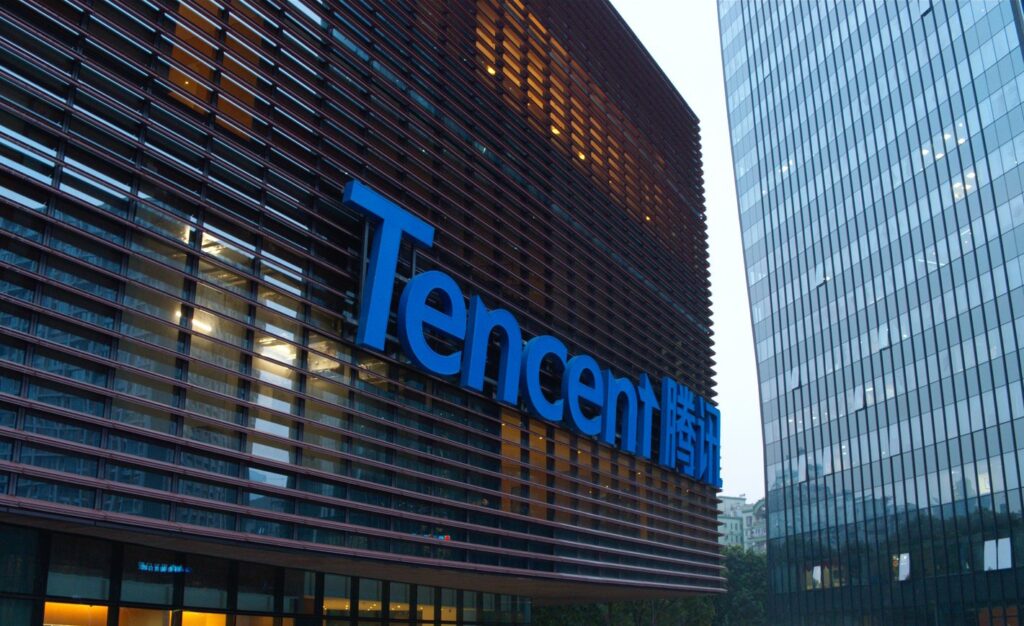
Tech giant Tencent released its Q1 2022 results on Wednesday for the quarter ending March 31, 2022, which revealed the company had raked in a total of RMB 36.5 billion ($21.3 billion) in revenues for the quarter–32% of which was derived from Tencent’s gaming operations.
Total revenues were fairly stable year-over-year compared to Q1 2021, with gaming revenues seeing minor fluctuations in both domestic and international markets.
Domestic games accumulated revenues of RMB 33 billion ($4.9 billion)–a 1% YOY decrease. In an earnings call (transcribed by Seeking Alpha), Tencent president Martin Lau attributed this decline to “minor protection measures” that negatively impacted the amount of both active and paying users.
Last August, China issued strict gaming guidelines for minors that prevented them from playing games during weekdays, and also only allotted them three hours total on weekends. Additionally, the country recently ended an eight-month-long freeze on issuing licenses for new video games.
During the call, both Lau and chief strategy officer James Mitchell expressed optimism that the company would be able to grow further, domestically, in the wake of the end of the licensing freeze.
“I think […] with more [licenses] being issued, and with the industry now on a more stable regulatory footing, […] it’s reasonable to expect that […] industry grossing trends will begin to improve as we move through the year,” said Mitchell.
The company didn’t share much else about its domestic plans for the future, but did attribute Honour of Kings, Peacekeeper Elite, Fight of The Golden Spatula, and Return to Empire as some of Tencent’s top titles in terms of receipts and player engagement.
International gaming revenues saw a slight 4% increase YOY to RMB 10.6 billion ($1.6 billion), with increased revenues in titles like Valorant and Clash of Clans being partially offset by decreases in revenues in other games, namely PUBG Mobile.
The company stated that the international games sector’s incremental growth was partly due to mobile user spending normalizing “post-COVID” during the quarter, resulting in lower total spending amounts when compared to a higher level of spending exhibited early in the COVID-19 pandemic.
“Generally speaking, the game business outside China, particularly for popular mobile games had a very buoyant period from late 2020 through late 2021,” Mitchell said. “And now, it’s facing a tough comparison against that period.”
This tracks with market research firm Sensor Tower’s Q1 2022 report on mobile game spending in the U.S. In the report, the firm estimated that U.S. consumer spending on mobile titles dropped by 10% YOY in the first quarter.
Singling out PUBG Mobile, Mitchell also stated that the battle royale’srevenues might take a bit to normalize. “I think it’s reasonable to expect that [for] PUBG Mobile there’ll be tough comparatives for another few months before the year-on-year trends normalize towards the end of this year.”
However, international PC games didn’t quite experience the same struggle that Tencent’s worldwide mobile titles did. As Mitchell explains, the company’s PC products didn’t see the same level of success during the early days of the pandemic, and as a result, they’re not currently suffering from what Mitchell described as a “COVID hangover.”
Looking at the larger picture, the company’s profits dipped by a stark 51% YOY to RMB 23.4 billion ($3.7 billion). This drop can be partially attributed to increased expenses throughout the quarter, including a 40% YOY jump in total general and administrative expenses.
According to chief financial officer John Lo, the increased expense is reflective of increases in headcount, larger expenses from overseas subsidiaries, and other expenses derived from recently-acquired subsidiaries. Later in the call, Mitchell stated that the company “should expect [general and administrative] expenses to decelerate” throughout the year.
 GameDaily.biz © 2026 | All Rights Reserved.
GameDaily.biz © 2026 | All Rights Reserved.